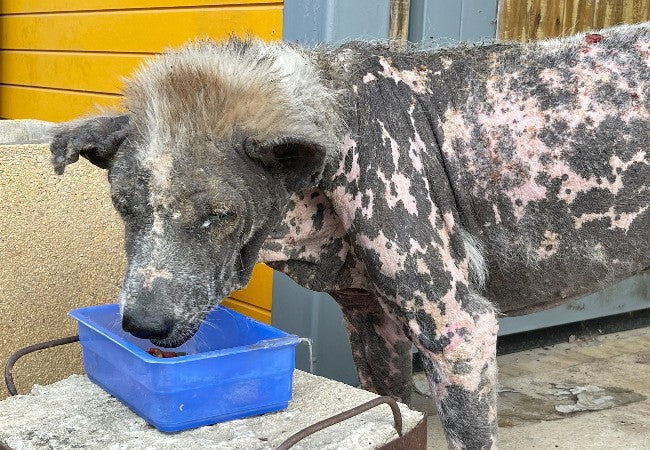Vet Approved Guide: MRSA & Other Antibiotic‑Resistant Staph Infections in Dogs – Signs, Treatment & 2025 Prevention 🐶🐾

In this article
Vet Approved Guide: MRSA & Other Antibiotic‑Resistant Staph Infections in Dogs – Signs, Treatment & 2025 Prevention 🐶🐾
By Dr. Duncan Houston BVSc
MRSA (Methicillin‑Resistant Staph aureus) and MRSP (Methicillin‑Resistant Staph pseudintermedius) are antibiotic‑resistant staph infections that can affect dogs, causing persistent skin and surgical site infections. These superbugs are tougher to treat—but with accurate diagnosis, targeted therapy, and prevention strategies, your dog can recover. 🛡️
🧬 How These Infections Develop
- Host-to-pet transmission: MRSA often spreads from colonized or infected humans to dogs, especially after hospitalization or contact with therapy animals.
- Pet-to-pet transmission: MRSP is common in dogs—approximately 30% carry resistant strains—often linked to antibiotic misuse.
- Risk factors: Recent surgery, skin wounds, hospitalization, or antibiotic history increase susceptibility.
⚠️ When to Suspect an Antibiotic‑Resistant Staph Infection
- Chronic or recurring skin lesions that fail to respond to standard antibiotics
- Red, pustular wounds around surgical sites or puncture injuries
- Signs like crusting, scaling, and ear or respiratory infections that persist
🩺 How Vets Diagnose Resistance
- Culture and sensitivity testing: Essential to identify the staph strain and test antibiotic susceptibility.
- Samples may be taken from skin, wounds, the nose, or anus.
🛠️ Treatment Approaches
- Drain & clean wounds: Surgical debridement of abscesses or infected tissue.
- Targeted antibiotics: Tailored based on lab results—options include clindamycin, trimethoprim-sulfamethoxazole, doxycycline, linezolid, or topical mupirocin.
- Topical therapy: Medicated chlorhexidine baths help reduce bacterial load.
- Resolve underlying issues: Allergies, endocrine disease, dental problems—all must be treated to prevent recurrence.
🏠 Preventing Spread & Recurrence
- Strict hygiene: Wash hands, use gloves when handling infected sites, and launder bedding often.
- Isolate infected pets from other animals and humans—avoid face-centred contact until resolved.
- Complete all antibiotics exactly as prescribed.
- Consider decolonization baths (e.g. chlorhexidine) under vet guidance.
- Enhanced cleaning of household surfaces and toys.
📈 Prognosis & Risks
- With proper culture-based therapy and hygiene, full recovery is likely.
- Untreated infections can lead to deeper issues like joint or bone infections (septic arthritis), which are emergencies.
- Dogs may become long-term carriers—retesting and recurring treatment may be needed.
- Zoonotic risk is low in healthy households, but good hygiene is recommended to protect vulnerable individuals.
📱 Vet‑Approved Support Tools
- Ask A Vet: 24/7 advice on antibiotic resistance, treatment duration, and hygiene protocols. 🩺
🎯 Final Thoughts
MRSA and MRSP are serious, antibiotic-resistant infections—but not hopeless. Key steps include accurate diagnosis, targeted therapy, and hygiene measures. Most dogs make full recoveries when treatment is tailored and consistent. If your pet has recurring skin issues, ask your vet about cultures and resistance testing. 🐾
For personalized guidance and reassurance, download the Ask A Vet app today. 📲🐶






